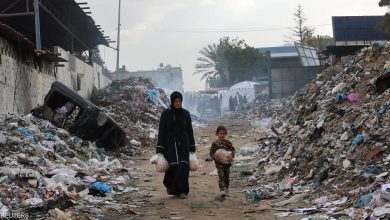Gaza Faces Worsening Hunger as Bakeries Shut Down Amid Israeli Blockade
Flour, fuel, and gas shortages push residents to the brink, forcing families to bake bread on open fires and rely on minimal food supplies amid international famine warnings.
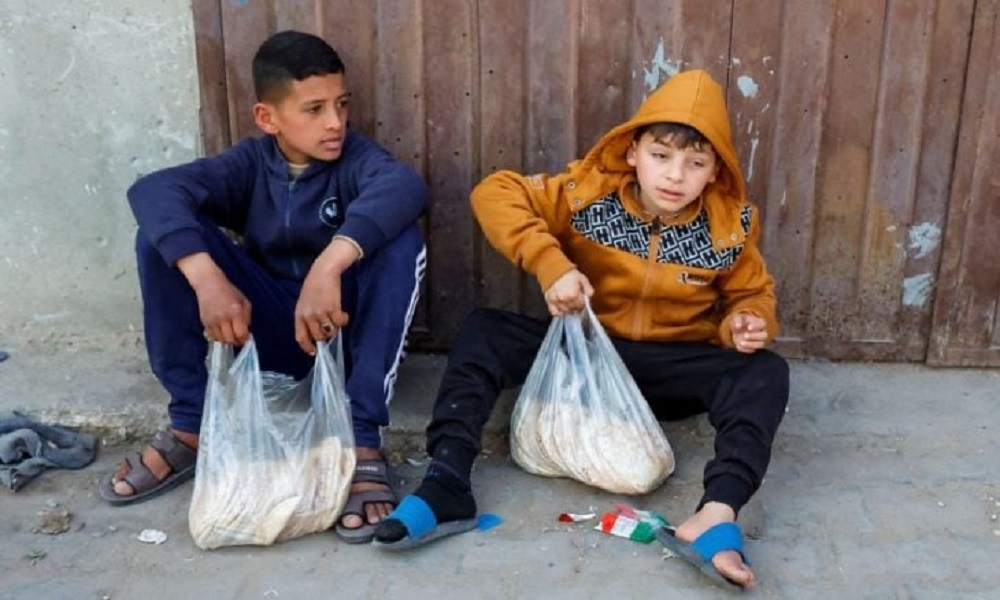
Watan-Hunger has overtaken the residents of the Gaza Strip after bakeries operating under the World Food Programme (WFP) shut their doors. This follows a month-long, tightened Israeli siege that has blocked all goods from entering the area—including fuel, cooking gas, and flour.
With the depletion of small remaining stocks of flour, cooking gas needed for ovens, and fuel for powering generators, bakeries across Gaza have been forced to close. Hunger is now gnawing at the population. Storefronts of once-crowded bakeries now stand empty, their ovens silent, removing a vital lifeline for a population already suffering from deep poverty and lacking enough flour to bake bread at home.
These bakeries had been selling bread at reduced prices—sometimes for less than its original cost—under agreements with the WFP. Bakery owners covered only labor and operational costs, as flour and gas were provided by the UN. This arrangement allowed residents, even after long waits in lines, to buy about 3 kilograms of bread daily for under a U.S. dollar.
Bread Scarcity Deepens Gaza’s Hunger Fears
Mohammed Sidam, from central Gaza, said the closure of his neighborhood bakery, which he relied on daily, would cause serious problems. “It’s difficult to make bread at home, especially now that we’ve run out of cooking gas and barely have any flour left,” he said. “In fact, many homes are already out completely.”
Speaking while walking through the market near the Nuseirat refugee camp, close to shelter centers, he added that like most families, his depends on bread “to silence the hunger.” With basic food items scarce and those available being sold at inflated prices, “bread is all we have to fill our stomachs.” This is the case for virtually all Gaza residents, who fear a worsening bread crisis if the crossings are not opened soon.
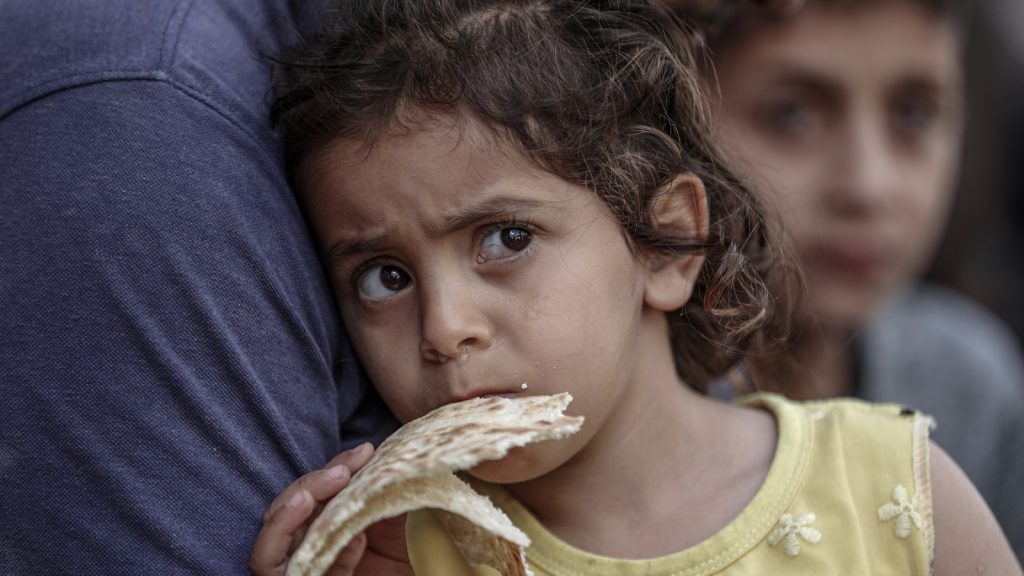
A Return to Wood-Fired Ovens
Many families have been forced to resort to primitive wood-fired ovens to bake bread—methods they have also used to cook meals since their cooking gas ran out due to the long blockade imposed by Israeli authorities following the end of the first ceasefire.
Firewood is hard to come by and expensive, and the smoke from these ovens poses health risks to children and the elderly, particularly those with respiratory conditions.
Abdel Nasser Al-Ajrami, head of the Bakery Owners Association in Gaza, confirmed that all bakeries in the Strip closed due to a lack of flour and diesel. He added that the WFP informed them its flour supplies in Gaza had run out. He warned that the closures will worsen the hunger crisis in the Strip.
In recent weeks, many food items have disappeared from markets—especially vegetables and meat. What little remains is now sold in small quantities at prohibitively high prices, beyond the financial reach of most residents.
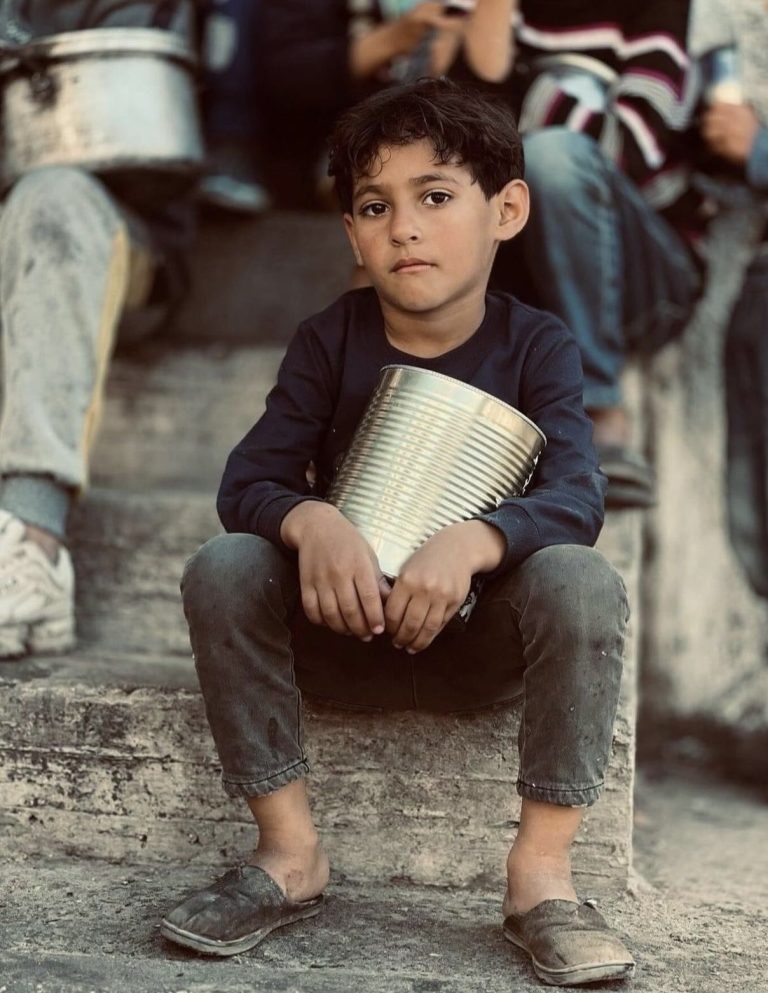
International Warnings
Several international and local organizations have warned of the growing risk of famine in Gaza due to the ongoing Israeli siege.
UNICEF Executive Director Catherine Russell said that with aid blocked from entering Gaza since March 2—the longest interruption since the war began—food, clean water, shelter, and medical care have become increasingly scarce. She warned: “Without these essential supplies, malnutrition, disease, and other preventable dangers will rise, leading to even more avoidable child deaths.”
The World Food Programme also warned that thousands of Gaza residents are once again facing acute hunger and malnutrition as food stocks dwindle and crossings remain closed to aid. The UN Office for the Coordination of Humanitarian Affairs (OCHA) described the deteriorating situation: “Everything in Gaza is running out—supplies, time, and life,” noting that the space where families can survive is shrinking as Israel issues new displacement orders daily.
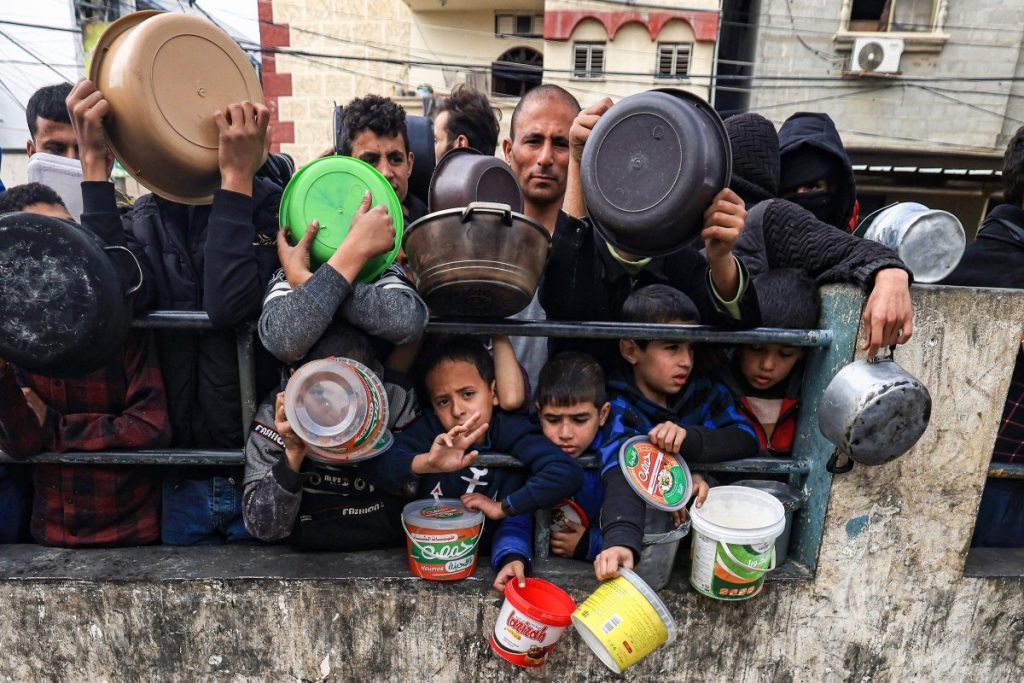
The Flour Crisis
Eyad, known as “Abu Samer,” struggled to borrow a few kilograms of flour from a neighbor—just enough to get by temporarily. He said he can’t do that again, as families barely have enough for themselves. His home has been out of flour for a week, and he had been relying entirely on local bakeries to feed his family.
He stressed that the prolonged closure of the crossings is worsening the crisis not just for his family, but for all his neighbors and relatives. He also mentioned that he has not received any food aid from humanitarian organizations for a long time.
The United Nations Relief and Works Agency for Palestine Refugees (UNRWA) recently warned that the situation in Gaza is “extremely concerning” due to the drastic reduction in aid distributions caused by the extended blockade.
Amjad Shawa, head of the Palestinian NGOs Network, stated that the Strip has entered a new phase of famine due to the siege. “We have reached an unprecedented level of humanitarian disaster,” he said, accusing the Israeli occupation of deliberately endangering civilian life in Gaza.



